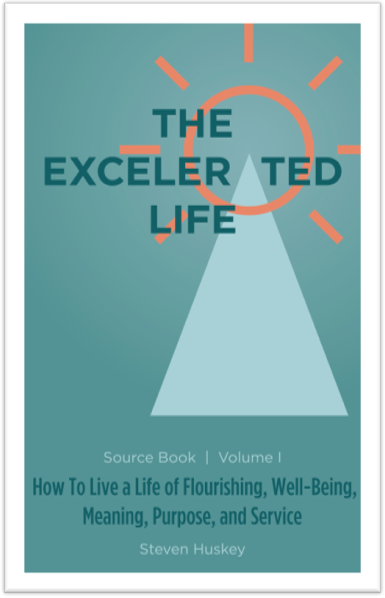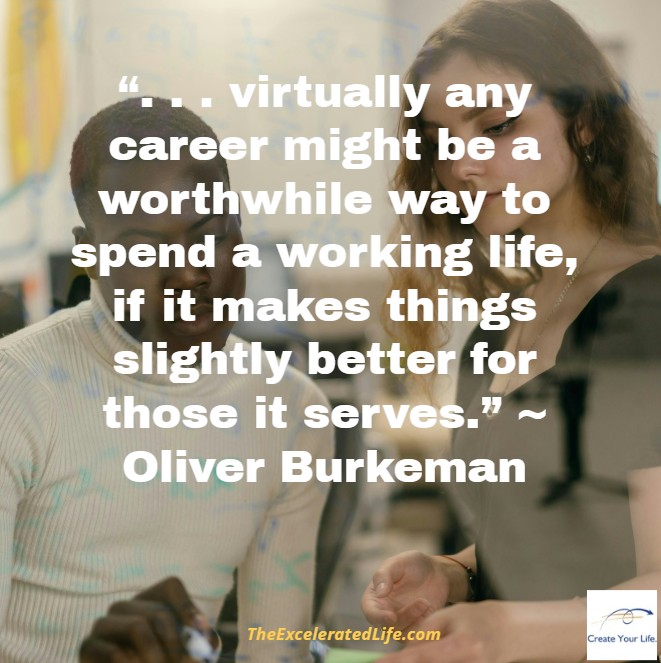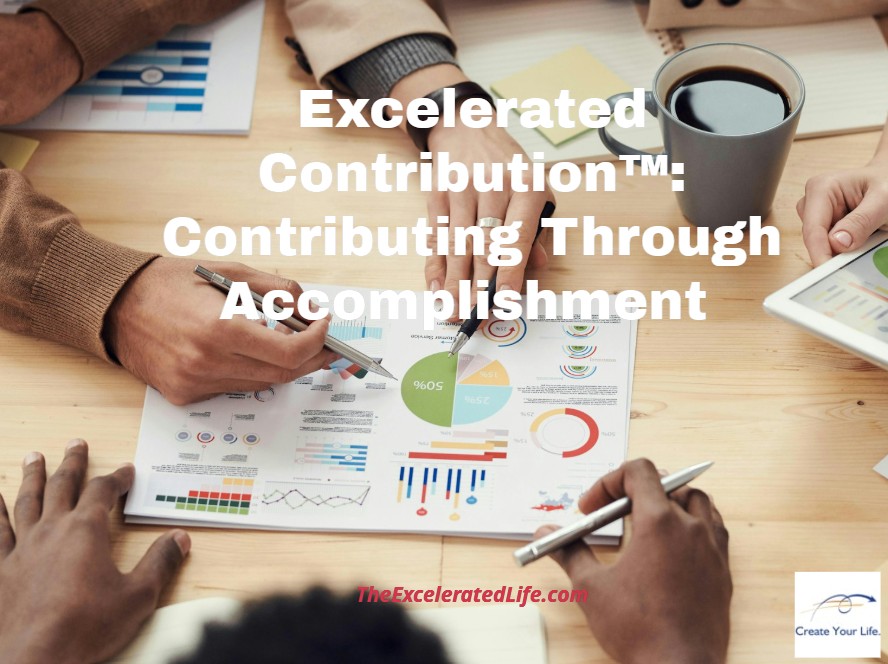Contribution, not achievement, is the true measure of a life well lived. Your legacy won’t be the titles you held or the wealth you accumulated. It will be the ways you showed up, the people you helped, and the value you created in the lives of others.
The George Bailey Effect
Remember the final scene of It’s a Wonderful Life? There, we see George Bailey standing in his living room, surrounded by his family and friends. By most worldly measures, he was a failure. He had no wealth, no glamorous accomplishments, and no recognition outside his small town. Yet, in that moment, his home was overflowing with friends and neighbors whose lives had been touched and transformed by his presence. George Bailey wasn’t remembered for what he achieved, but for how he contributed.
This scene captures the essence of Excelerated Contribution™. True fulfillment rarely comes from chasing titles, trophies, or promotions. It comes from the ways, large and small, that we give of ourselves to the people and causes that matter to us. When we shift our focus from achievement to contribution, we unlock a deeper, more lasting form of success.

Why This Is Important
Achievement alone rarely satisfies for long. Maybe you’ve noticed this yourself. You reach a milestone, check off the box, and within days you’re already asking, “What’s next?” It’s an endless treadmill.
Contributions, on the other hand, ripple outward. A kind word, a finished project that helps someone else, a habit of showing up for your family or community — these create a sense of purpose that endures long after the initial effort.
Clayton Christensen, in How Will You Measure Your Life?, observed: “How you allocate your own resources can make your life turn out to be exactly as you hope—or very different from what you intend.” The truth is that time and energy spent on relationships and contributions usually bring us closer to the life we want.
The Pitfalls of Achievement-Only Living
Focusing only on achievement often leads to two traps, as writer Mike Scott explains:
- We fail to achieve the goal. We feel discouraged, question ourselves, and sometimes abandon meaningful efforts altogether.
- We achieve the goal, but the satisfaction is short-lived. Almost immediately, we set a bigger, harder goal because the last one didn’t give us the lasting fulfillment we expected.
Both outcomes keep us stuck. Contribution offers a way out. When your measure of success is how you serve or add value, there is no failure. Every effort counts.
What Contribution Looks Like
Contribution seldom looks dramatic. In fact, it’s usually small, steady, and consistent.
- A handwritten note of appreciation.
- A system you improve at work that makes everyone’s day smoother.
- Choosing to listen instead of rushing to reply.
- Volunteering an hour a week.
- Using your lunch break to learn, connect, or serve, as Cheryl Johnson suggests in Box Lunch Lifestyle.
Each act may feel small in the moment, but added together, they build a legacy of service and impact.
And here’s a freeing truth from Oliver Burkeman’s Four Thousand Weeks: you don’t need to be a Michelangelo or an Einstein to live a life well spent. Meaning comes not from being extraordinary but from making things just a little better for the people around you.
Eight Ways to Practice Excelerated Contribution™
- Identify your accomplishments. Keep a record, no matter how small.
- Connect to a greater purpose. Ask: how does this effort help someone beyond myself?
- Measure the impact. Instead of “I finished the project,” try: “The project saved my team hours each week.”
- Share your contributions. Not as bragging, but as encouragement in showing others what’s possible.
- Seek and give feedback. Feedback fosters growth and strengthens a culture of contribution.
- Start small, start now. Use the time you already have (like lunch breaks) for meaningful acts.
- Cut out the noise. Ask: is this task contributing, or is it just busyness?
- Build consistency. Let contribution become a habit, not a special occasion.

Moving from Achievement to Contribution
Suppose you’re working on a project at work. The achievement mindset says, “If I deliver this on time, I’ll look good.” The contribution mindset reframes it: “If I design this well, it will save my colleagues time and make their jobs easier.” Same task, different motivation. One fades quickly, the other builds connection and trust.
Putting Ideas into Action
- At the end of each day, ask yourself: What did I contribute today? Write it down.
- Take one accomplishment you’re proud of and reframe it in terms of contribution. Who benefited? How?
- Pick one small act of service, such as sending a note of thanks, tidying a shared space, or encouraging a colleague, and do it today.
- Review your weekly to-do list. Eliminate at least one item that doesn’t meaningfully contribute to you, your family, your work, or your community.
Contributing Through Accomplishment
George Bailey’s life reminds us that contribution, not achievement, is the true measure of a life well lived. Your legacy won’t be the titles you held or the wealth you accumulated. It will be the ways you showed up, the people you helped, and the value you created in the lives of others.
So here’s your challenge: this week, shift your focus. Ask not only “What am I achieving?” but also “How am I contributing?” Then act on it — one small, steady contribution at a time. For that’s how you embrace your Excelerated Life™!
What are you working to accomplish at this time in your life?
How can you turn your accomplishment into a contribution to make our world a better place?
Share your ideas by leaving a post below.
Excelerated Contribution™ — achieving meaningful objectives while giving back more than you take — is one practice for creating your Excelerated Life™, a life of flourishing and well-being, and a life of meaning, purpose, and service.
Read more about the Excelerated Life™.
Resources:
Burkeman, Oliver. Four Thousand Weeks: Time Management For Mortals. New York: Farrar, Straus and Giroux, 2021.
Christensen, Clayton M. How Will You Measure Your Life? New York: HarperCollins Publishers Inc., 2012.
Johnson, Cheryl K. Box Lunch Lifestyle. Marine on St. Croix, MN: Traction Books, 2022.
Scott, Mike. “What happens when we shift our focus from achievement to contribution?” Medium.com. A Medium Corporation, July 29, 2020. Web. August 29, 2025.
https://medium.com/@mikescott88/what-happens-when-we-shift-our-focus-from-achievement-to-contribution-3e7868d66dd1
This blog post includes research information provided by ChatGPT, an AI language model developed by OpenAI. The content was generated with AI assistance and is intended to provide information and guidance. Please note that the suggestions are not official statements from OpenAI. To learn more about ChatGPT and its capabilities, you can visit the OpenAI website.


